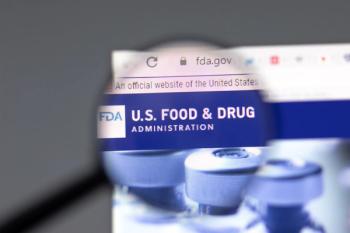
Racial and ethnic disparities in health access persist, highlighting the urgent need for targeted interventions to achieve health equity across various conditions.

Racial and ethnic disparities in health access persist, highlighting the urgent need for targeted interventions to achieve health equity across various conditions.

CK Wang, MD, explains that Black women face higher rates of late-stage breast and ovarian cancer diagnoses, demonstrating the need for better screening guidelines and more representative data.

A recent study reveals that many patients start dialysis at low-quality facilities due to convenience, highlighting significant racial disparities in care access.

Women, older adults, and low-income countries are impacted most; researchers call for urgent public health interventions.

Ustekinumab offers superior itch relief for severe psoriasis compared with guselkumab, new data show.

While multiple machine learning (ML) algorithms offered similar predictive performance, the cost-effective analysis revealed stark differences in the costs associated with their use.

Victor Murray, MSW, of the Camden Coalition, delves into the evolving role of social workers, focusing on advocacy, systems change, and addressing health disparities in underserved communities.

As community oncology evolves to deliver chimeric antigen receptor (CAR) T and bispecific therapies closer to home, support is needed to ensure patient access and precision medicine capabilities, says Nini Wu, MD.

This week, the Center on Health Equity & Access covered news from the Trump administration and CMS, Cigna's co-pay cap on weight loss drugs, and perspectives on living with HIV.

Recent research reveals COVID-19 significantly increases long-term kidney dysfunction risk compared with influenza, especially in older adults and men.

The Make Our Children Healthy Again assessment from the Make America Healthy Again (MAHA) Commission warns of a national childhood health crisis and calls for broad federal reforms.

As concerns grow nationally about the mental health of young people, a new study provides insight into ongoing debates about social media’s role.

New global analysis calls for urgent, targeted interventions as aging populations face rising rates of skin cancer.

While artificial intelligence (AI) is transforming community oncology, Nini Wu, MD, of Navista, emphasizes that success depends on patient access and infrastructure.

HHS announces it is taking steps to implement President Trump’s Executive Order on prescription drug pricing. Keep up with the latest moves made in health policy under President Donald Trump's second administration. This timeline will be updated as orders and policy progress.

Explore how employers enhance workplace mental health by fostering a culture of support and engagement, focusing on holistic well-being strategies in this interview with Jim Kinville, MA, University of Pittsburgh Medical Center.

In an era that FDA Commissioner Marty Makary, MD, MPH, calls an "epidemic of distrust" toward health institutions, previously contained disease rates are rapidly rising, and vaccination rates are proceeding in the opposite direction.

Proposed Medicaid cuts risk increasing health disparities, leaving millions uninsured and limiting access to essential care for vulnerable populations.

Childhood cancer survivors face heightened risks of chronic kidney disease and hypertension, necessitating urgent updates to monitoring guidelines for their long-term health.

Employers discover innovative strategies for enhancing employee engagement and access to care at the Greater Philadelphia Business Coalition on Health (GPBCH) Annual Conference, fostering actionable dialogue and collaboration.

CK Wang, MD, chief medical officer of COTA, highlights how a lack of screening tools and declining ob-gyn pipeline can compound historical disparities seen in Black women's access to care.

Employers explore innovative strategies at the Greater Philadelphia Business Coalition on Health (GPBCH) Annual Conference, focusing on GLP-1 policies to enhance health care quality and manage costs effectively.

New studies reveal unmet health care needs and racial disparities, while experts share insight on addressing food insecurity and the shifting health policy landscape.

Stephen Speicher, MD, and Kate Estep, from Flatiron Health, discuss the future of oncology care with artificial intelligence (AI).

Learn about how Allegheny Health Network's "Food as Medicine" initiative tackles food insecurity and enhances health through personalized nutrition support.

The Ensuring Community Access to Pharmacist Services (ECAPS) Act of 2025 (H.R. 3164) aims to ensure vital pharmacy services and access to care for underserved communities.

The FDA's decision to appoint Vinay Prasad, MD, MPH, to head its Center for Biologics Evaluation and Research (CBER) raised concerns over regulatory scrutiny as the biotech market dropped.

New research reveals how serum soluble Klotho levels relate to chronic kidney disease risk (CKD) in patients with diabetes and hypertension.

Discover how technological advancements and social factors impact cardiovascular care, LGBTQ+ health disparities, and cancer research at AACR 2025.

Lalan Wilfong, MD, of Thyme Care and Texas Oncology, discusses a session on circulating tumor DNA (ctDNA) and shares insight as chair of the Community Oncology Alliance (COA) Payer Reform Committee.

259 Prospect Plains Rd, Bldg H
Cranbury, NJ 08512
© 2025 MJH Life Sciences®
All rights reserved.
